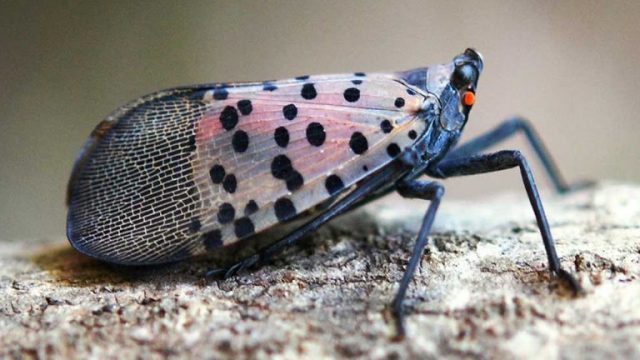Natural Predators Might Lead to Lanternfly Demise

As the spotted lanternfly continues to hold dominion over Pennsylvania and surrounding states, Anne Johnson, a graduate student in Penn State’s Department of Entomology, is attempting to find ways to better use the invasive insect’s natural predators against them, writes Michael Tanenbaum for the Philly Voice.
Johnson is conducting research on predatory behavior among native species that could turn out to be willing allies in the war against this relentless pest. However, she has noticed that these natural predators do not seem to view spotted lanternflies as a good food source despite their availability.
“We think the reason is that lanternflies may be capable of sequestering or storing bitter or toxic compounds (from the plants) that they’re feeding on, especially tree of heaven,” Johnson said.
She is now working on a chemical analysis of the insect to determine which compounds they might be storing. This could help provide information on how to better encourage their natural predators.
“If we remove those toxin-containing host plants, theoretically you may start to see an increase in predation from their natural predators,” she said.
Read more about spotted lanternfly at the Philly Voice by clicking here.
(This post first appeared Oct. 17, 2020).
You Might Also Like
Spotted Lanternfly Sightings in Pennsylvania Jump Fivefold Compared to Last Year
Penn Vet Adds a Dog’s Nose to Arsenal of Weapons Against the Dreaded Spotted Lanternfly
Spotted Lanternfly Trap Nabs Local Teen National Science Fair Award
Join Our Community
Never miss a Delaware County story!
"*" indicates required fields


























![95000-1023_ACJ_BannerAd[1]](https://delco.today/wp-content/uploads/sites/3/2023/03/95000-1023_ACJ_BannerAd1.jpg)





